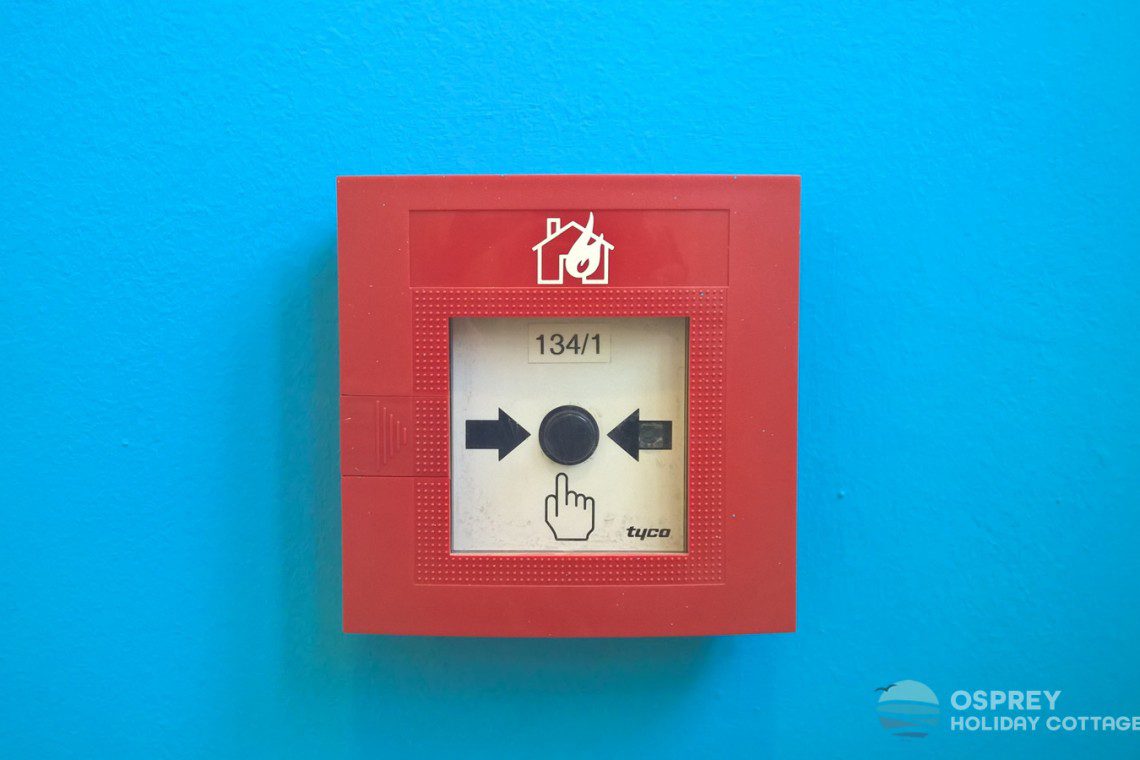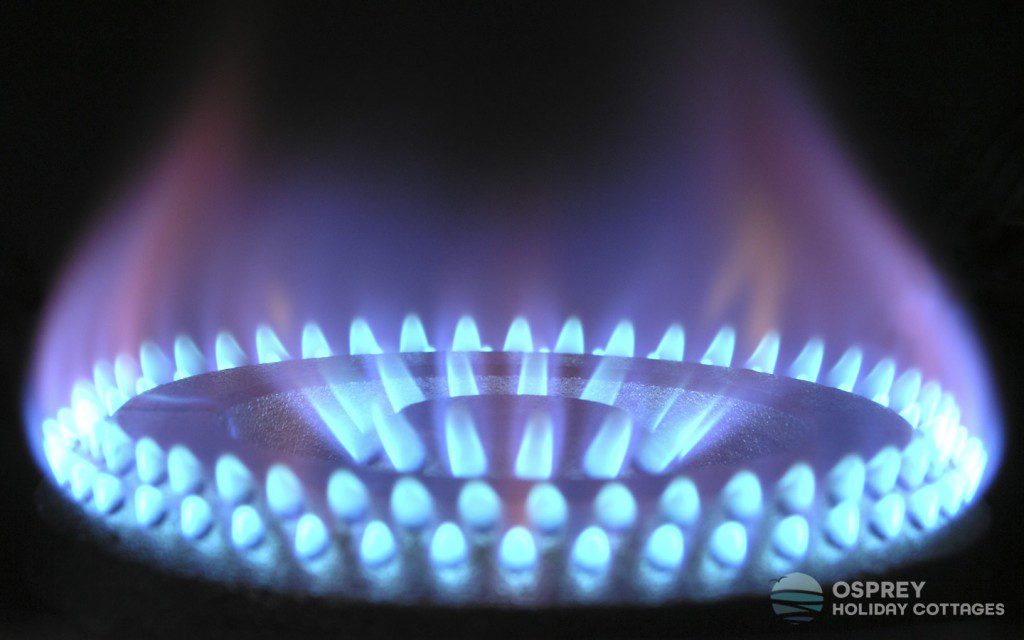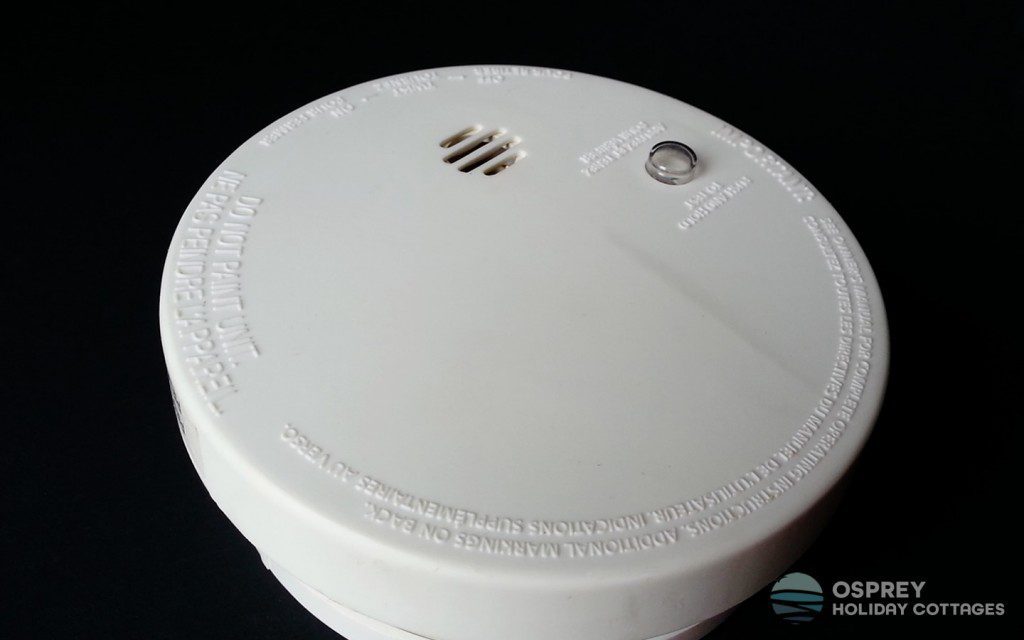Holiday letting: Business rates & council tax guide for 2025
- March 20, 2025
- Owner guides
Business rates, council tax and SBBR – what does it mean for you and your holiday letting? Whether you own a second... Read More

Health & safety doesn’t need to be a minefield with your holiday let. Of course there are obligations you have to abide by, but these shouldn’t be overwhelming. Our Owners Team can help guide you through the process, in a simple, straightforward manner…
In simple terms, ensuring the health & safety of your guests is not only paramount to their enjoyment of your holiday let, but also is your responsibility. Our team can help you with any questions you might have and arrange testing and checks on your behalf.
Unlike gas, there is no requirement for landlords to obtain and renew electrical safety certificates. That said, landlords are required by law to ensure that all electrical appliances, circuits and fixed installations are safe to use. Faulty electrics can result in fires, serious injury and in the worst cases death.
Electrical safety checks can be carried out by landlords, but we always recommend you get a full inspection by a qualified electrician each 3 years to make sure your holiday let is safe. A certificate will then be issued which proves you have met your duty as a holiday let owner.
Part of the inspection will check the condition of electrical installations, which degrade over time. So, if you have a lot of guests you may wish to have your property checked more often.
If, during one of our inspections, we discover a problem we will arrange an immediate repair or replacement. This applies to appliances and any wiring within the property.
If your property has electrical safety devices, called RCDs, they should be tested frequently. These RCDs (Residual Current Devices) monitor the flow of electricity through a circuit. If they detect a loss in current, such as through a person or other fault, it shuts down the supply straight away.
Since July 2008, it has been a legal requirement for RCDs to be fitted in new build properties and wherever a property is rewired. If your home was built before this time, you may want to add these to your circuits. At a minimum, we always recommend having RCDs fitted in areas that could be damp. This might be a kitchen, pool or utility room.
To test your RCD, look for the “test” or “T” button and press it. If it’s working correctly, it’ll cut the power supply.
For more on electrical safety, the Health & Safety Executive has an online guide.
The majority of holiday lets have a mains gas or bottle/tank supply. Whether it is used for heating or cooking, gas comes with associated risks but don’t let it put you off. While at the extreme end of risk, there could a fire, explosion or carbon monoxide poisoning – you can reduce the risk very simply.
Whether your property is available for holidays or rented out permanently, the rules and law are the same. You will always require a Gas Safety Certificate. The certificate, known as a CP12, can be provided after an inspecton by a Gas Safe registered engineer.

Their visit can usually be combined with an annual boiler service and you, as the owner, don’t need to be there but your details will be on the certificate. You will have to have your property and the appliances within it checked every year. Moreover, you’ll need to hold onto your certificate for a minimum of 2 years, but we recommend keeping a record of all of them. The current certificate must be available to be viewed in a prominent position where your guests can see it.
Here at Osprey Holiday Cottages, we will retain an electrical copy which we can produce to your guests on request too. It’s all about peace of mind.
The risk of fire is present in all holiday lets and properties. There are various things you can do to help reduce the risk and ensure the safety of your guests.
To begin with, the law requires you to carry out a fire risk assessment. These will tell you if there are any fire hazards and who will be at risk. You can also work out if there’s something else you can do to reduce the risk. It is your responsibility to do this as the landlord and we know that not all landlords are familiar with these. We can help you with your assessment and provide practical advice.
In some cases, we can even seek specialist advice to help ensure the safety of your guests.
Things to consider to reduce risk include installing a hearth and spark guard around a fireplace, or choosing different furniture. Once you’ve identified who is at risk, you can work out how you can cater for children or for people with disabilities. Remember, you need to think about how you would get out of your property in the event of a fire.
We recommend that you check your risk assessment every year. While the law doesn’t specify a timeframe – you can keep up-to-date with anything that has changed in your property.
It is a legal requirement to fit smoke alarms. There should be at least one on every floor, but the more you have the earlier warning your guests will have. Avoid placing them in bathrooms or right outside of a bathroom door as the steam can activate them.
Some properties require a mains powered smoke alarm system. These can still operate during a power cut as they have a back-up battery installed. In some circumstances, may have to have fire alarms.
Ensure you test your smoke alarms every week. Our teams will check them as part of their cleaning routine and advise us of any faults or problems.

While a desirable feature, adding a cosy feel to your holiday let, there are extra risks. Having your chimney swept annually will prevent the risk of chimney fires (and subsequent property fires).
To help maintain the safety of children, remember to have a childsafe fireguard available in your property.
While most landlords think about smoke alarms, a number often forget a carbon monoxide detector. Carbon monoxide is a poisonous gas and can be fatal. Without a detector its difficult to detect too as you can’t smell it or taste it. It’s produced when fuels, like gas or oil, aren’t burnt fully.
As well as having your boiler and other appliances serviced and tested regularly, as a landlord you are legally required to fit a detector.
There is a specific law relating to this issue and you can read more reading the Q&A booklet produced by the Government.
Many holiday cottages are in a remote location, which makes them idyllic but means they sometimes have an oil tank rather than a gas supply. Similar to mains gas appliances, faults in oil heating and other appliances can lead to carbon monoxide poisoning.
As well as following the oil storage regulations, there’s periodic servicing which has to be carried out and consideration given to Oil Safety Certificates.
We recommend your appliances are inspected regularly by an OFTEC Registered Technician. You can find one on the OFTEC web site.
You should always remember to check the storage tanks and supply pipes often for leaks.
There are certain other legal obligations, including holiday let insurance, taxes, building control regulations and in some cases even planning permission. But don’t worry – our team can help you with this. Just get in touch with us and we’ll get you the answers you need.
Join The Discussion